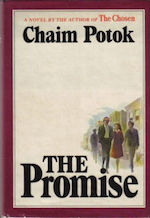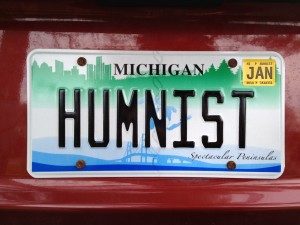ALBANY, N.Y. — A cadet quitting West Point less than six months before graduation says he could no longer be part of a culture that promotes prayers and religious activities and disrespects nonreligious cadets.
Blake Page announced his decision to quit the U.S. Military Academy this week in a much-discussed online post that echoed the sentiments of soldiers and airmen at other military installations. The 24-year-old told The Associated Press that a determination this semester that he could not become an officer because of clinical depression played a role in his public protest against what he calls the unconstitutional prevalence of religion in the military.
“I’ve been trying since I found that out: What can I do? What can I possibly do to initiate the change that I want to see and so many other people want to see?” Page said. “I realized that this is one way I can make that change happen.”
Page criticized a culture where cadets stand silently for prayers, where nonreligious cadets were jokingly called “heathens” by instructors at basic training and where one officer told him he’d never be a leader until he filled the hole in his heart. In announcing his resignation this week on The Huffington Post, he denounced “criminals” in the military who violate the oaths they swore to defend the Constitution.
“I don’t want to be a part of West Point knowing that the leadership here is OK with just shrugging off and shirking off respect and good order and discipline and obeying the law and defending the Constitution and doing their job,” he told the AP.
West Point officials on Wednesday disputed those assertions. Spokeswoman Theresa Brinkerhoff said prayer is voluntary at events where invocations and benedictions are conducted and noted the academy has a Secular Student Alliance club, where Page served as president.
Maj. Nicholas Utzig, the faculty adviser to the secular club, said he doesn’t doubt some of the moments Page described, but he doesn’t believe there is systematic discrimination against nonreligious cadets.
“I think it represents his own personal experience and perhaps it might not be as universal as he suggests,” said Utzig, who teaches English literature.
One of Page’s secularist classmates went further, calling his characterization of West Point unfair.
“I think it’s true that the majority of West Point cadets are of a very conservative, Christian orientation,” said senior cadet Andrew Houchin. “I don’t think that’s unique to West Point. But more broadly, I’ve never had that even be a problem with those of us who are secular.”
There have been complaints over the years that the wall between church and state is not always observed in the military. The Air Force Academy in Colorado in particular has been scrutinized for years over allegations from non-Christian students that they faced intolerance. A retired four-star general was asked last year to conduct an independent review of the overall religious climate at the academy.
There also has been a growing willingness in recent years by some service members to publicly identify themselves as atheists, agnostics or humanists and to seek the same recognition granted to Christians, Jews and other believers. Earlier this year, there was an event at Fort Bragg that was the first known event in U.S. military history to cater to nonbelievers.
Page said he hears about the plight of other nonreligious cadets in part through his involvement with the West Point affiliate of the Military Religious Freedom Foundation. The founder and president of that advocacy group said Page’s action is a milestone in the fight against “fanatical religiosity” in the military.
“This is an extraordinary act of courage that I do compare directly to what Rosa Parks did,” said Mikey Weinstein.
Page, who is from Stockbridge, Ga., and who was accepted into West Point after serving in the Army, said he was notified Tuesday of his honorable discharge. He faces no military commitment and will not have to reimburse the cost of his education.
West Point confirmed that it approved his resignation and that Page had been meeting the academic standards and was not undergoing any disciplinary actions. Page said he had been medically disqualified this semester from receiving a commission in the Army as a second lieutenant – like his classmates will receive in May – because of clinical depression and anxiety. He said his condition has gotten worse since his father killed himself last year.
It’s not unusual for cadets to drop out of West Point, an institution known for its rigorous academic and physical demands. But the window for dropping out without the potential for a penalty is in the first two years. Dropouts are rare after that point.
Page expects to leave for his grandparents’ home in Wright County, Minn., in the coming days. He plans to remain an activist on the role of religion in the military.
“I’d really love to be able to do this for the rest of my life,” he said.
 January 2013
January 2013